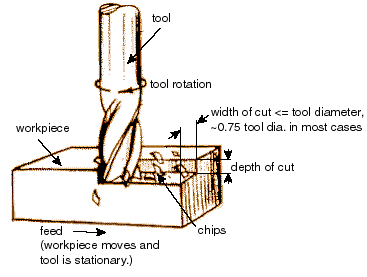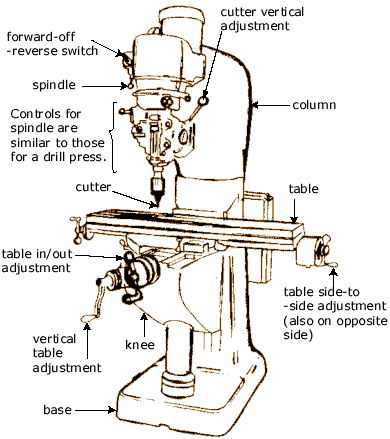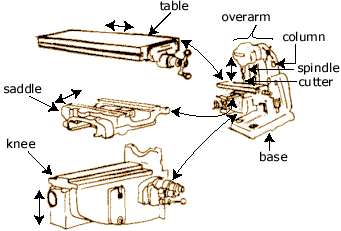Milling: Introduction
Milling is as fundamental as drilling among powered metal cutting processes.
Milling is versatile for a basic machining process, but because the milling set up has so many degrees of freedom, milling is usually less accurate than turning or grinding unless especially rigid fixturing is implemented.
For manual machining, milling is essential to fabricate any object that is not axially symmetric. There is a wide range of different milling machines, ranging from manual light-duty Bridgeports™ to huge CNC machines for milling parts hundreds of feet long. Below is illustrated the process at the cutting area.

Milling: Column-and-Knee Manual Mill
Below is illustrated a typical column-and-knee type manual mill. Such manual mills are common in job shops that specialize in parts that are low volume and quickly fabricated. Such job shops are often termed "model shops" because of the prototyping nature of the work.

The parts of the manual mill are separated below. The knee moves up and down the column on guideways in the column. The table can move in x and y on the knee, and the milling head can move up and down.


